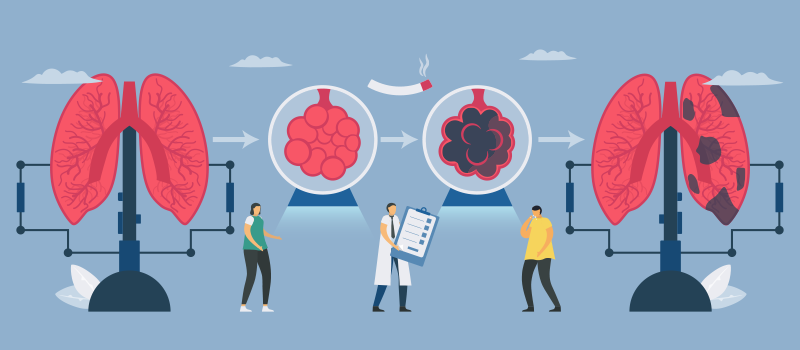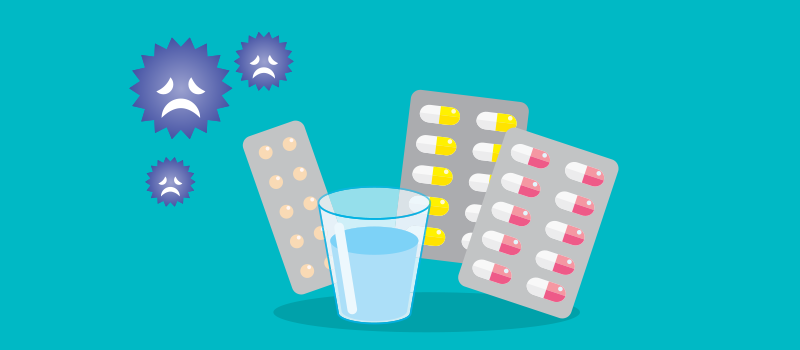What is the Fastest Way to Get Rid of an Upper Respiratory Infection?

Key Takeaways
-
Recover from an upper respiratory infection faster by staying hydrated, getting plenty of rest, taking over-the-counter (OTC) pain relievers, cough medicine, saline spray, and inhaling steam from hot water to loosen mucus.
-
Most of the time, upper respiratory infections go away on their own after 1-2 weeks, but home remedies can help relieve symptoms.
-
You can relieve symptoms of an upper respiratory infection with over-the-counter medicines like Tylenol (acetaminophen), Advil (ibuprofen), Antihistamines, decongestant nasal sprays, and cough suppressants.
Upper respiratory infections are among the top three diagnoses in outpatient healthcare settings in the U.S.; they account for an estimated 10 million doctors’ appointments each year. Examples of upper respiratory infections include the common cold, sinusitis, pharyngitis (sore throat), and laryngitis (inflammation of the voice box and vocal cords). Flu or influenza infection isn’t considered an upper respiratory infection since it affects the entire body. However, flu and common colds can cause similar symptoms.
Most upper respiratory infections are viral infections, but they can also sometimes be bacterial infections. They involve the nose, sinuses, and throat and can make you feel miserable. But upper respiratory tract infections are usually less serious than infections that involve the lower part of the respiratory system, including airways and lungs, for example, pneumonia, bronchiolitis, and bronchitis.
Please continue reading to find out what helps you recover from an upper respiratory infection.
What are upper respiratory infection symptoms?
Common symptoms of upper respiratory tract infections include a sore or scratchy throat, cough, hoarseness, postnasal drip, runny nose, nasal congestion, red eyes, watery eyes, and swollen lymph nodes in the neck. Other symptoms usually include fever, tiredness, and lack of energy. Sinus infections can cause symptoms such as headache, pain or pressure behind the eyes, ear pain, and temporary loss of smell.
How long does it take for an upper respiratory infection to completely go away?
It can take up to two weeks for an upper respiratory infection to completely go away. Most people start feeling better in 1-2 weeks.
If you have severe symptoms or symptoms that last more than two weeks, you should contact your healthcare provider. You may have a more serious condition, such as bronchitis or pneumonia. Call your doctor without delay if you have the following symptoms:
-
Difficulty breathing, wheezing, or difficulty swallowing
-
High fever (greater than 103 F)
-
Persistent, severe coughing
-
Fast breathing rate
-
Dizziness, severe weakness, loss of consciousness
-
More common in children than adults: retractions (the outline of the ribs become more noticeable than usual), stridor (a high-pitched noise when breathing)
Also, contact your provider if you are at a high risk of complications, especially in older adults, infants, and people with a weakened immune system.
How do you recover quickly from an upper respiratory infection?
Most of the time, upper respiratory infections go away on their own. Home remedies and over-the-counter medications can help you feel better. Here are some ways to help you feel better and help with the recovery process from an upper respiratory infection:
-
Stay hydrated by drinking fluids.
-
Get plenty of rest and enough sleep.
-
Use over-the-counter pain relievers for body aches.
-
Take over-the-counter cough medicines if you are coughing. Talk to your doctor or pharmacist if you have high blood pressure, as some of the OTC cough and cold products may not be the safest option for you.
-
Use a saline nasal spray to soften mucus in the nasal passages.
-
Do gargles with warm salt water to loosen congestion.
-
Use a cool mist humidifier or cool mist vaporizer to add moisture to your mucous membranes.
-
Inhale steam from hot water to loosen mucus and soothe the nasal passages.
What is the best thing to drink for a respiratory infection?
The best things to drink for an upper respiratory infection such as the common cold, sinus infection, or sore throat are warm water or warm lemon water, herbal teas, clear broths, and chicken soup. These warm fluids help prevent fluid loss (dehydration) and soothe an irritated throat. Some people find that it helps to drink fluids that are cold, suck on popsicles, or eat Jell-O to soothe a sore throat. It is best to avoid caffeine and alcohol as they can be dehydrating.
What is the best medicine for upper respiratory infection?
The best medicine for an upper respiratory infection is to drink plenty of fluids and get plenty of rest. Most people don’t need any specific treatment besides these home remedies. However, the following over-the-counter medications can help you feel better:
-
Pain relievers such as Tylenol (acetaminophen) and Advil (ibuprofen) for fever and body aches.
-
Antihistamines and nasal sprays to ease congestion.
-
Cough suppressants to ease coughing.
When using over-the-counter medications, make sure you read the dosage instructions carefully. Many medications meant for adults and older children may not be safe for younger children.
If you have kidney disease, Tylenol (acetaminophen) is the best option for you because NSAIDs (nonsteroidal anti-inflammatory drugs) such as Advil (ibuprofen) and Aleve (naproxen) may be harmful to your kidney. Always read the product labels of OTC cough and cold products carefully. Talk to a pharmacist if you are unsure which OTC cough and cold products are safe for you to take.
Tylenol (acetaminophen) may be harmful to you if you have liver disease. Talk to your doctor if you have liver disease. Your doctor will tell you if it’s okay for you to take Tylenol and what the safe amount is for you.
Talk to your doctor or pharmacist if you have high blood pressure. Certain OTC cough and cold products can elevate your blood pressure further. Coricidin HBP is one of the recommended options if you have high blood pressure.
If you have a bacterial infection such as strep throat, your doctor can prescribe antibiotics. However, antibiotics can only treat bacterial infections. They will not work for a viral infection. You should not take leftover antibiotics as it can make it harder to treat bacterial infections later.
Contact your doctor without delay if you have symptoms such as trouble breathing or swallowing, high fever, bloody mucus with coughing, or worsening symptoms. You may have a lung infection that needs to be treated in the hospital.
How to prevent upper respiratory infections?
The best ways to protect yourself against upper respiratory infections are to:
-
Avoid contact with an infected person.
-
Wash hands with soap and water regularly, especially after hand-to-hand contact with other people.
-
Avoid touching your mouth, nose, and eyes with your hands.
-
Wear a mask in public places.
-
Get vaccinated.
If you are sick with an upper respiratory infection, keep in mind that they can be very contagious. To prevent spreading it to others:
-
Avoid direct contact with others, including family members.
-
If one child in your family is sick, keep them away from other children in the household.
-
Cover your mouth and nose when coughing or sneezing, and discard used tissues carefully.
-
Clean and disinfect commonly touched surfaces.
Save on Your Over-the-Counter Medication with BuzzRx!
Manage your over-the-counter medication costs with BuzzRx coupons. Here are direct links to substantial savings for each medication:
-
Acetaminophen Coupon: Pay as low as $3.80 when you use a BuzzRx coupon.
-
Ibuprofen Coupon: Use your BuzzRx coupons to pay as low as $5.12.
-
Coricidin Hbp Chest Cong-Cough Coupon: Use your BuzzRx coupons to pay as low as $4.85.
Remember, these coupons are widely accepted at over 60,000 pharmacies, including major chains like CVS, Walgreens, and Rite Aid. Just present your coupon at the pharmacy to ensure you're getting the best possible price.
References:












SOCIAL